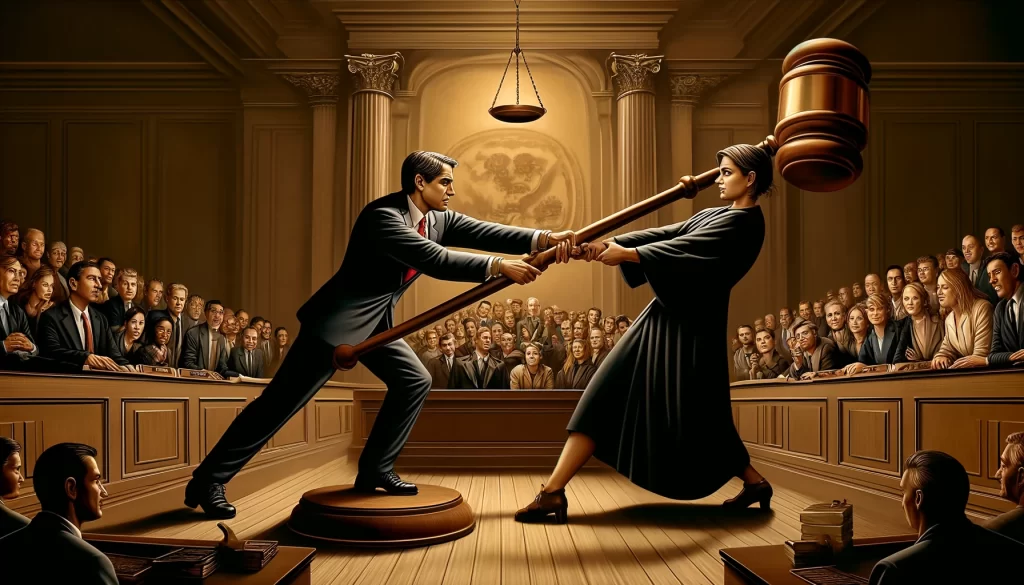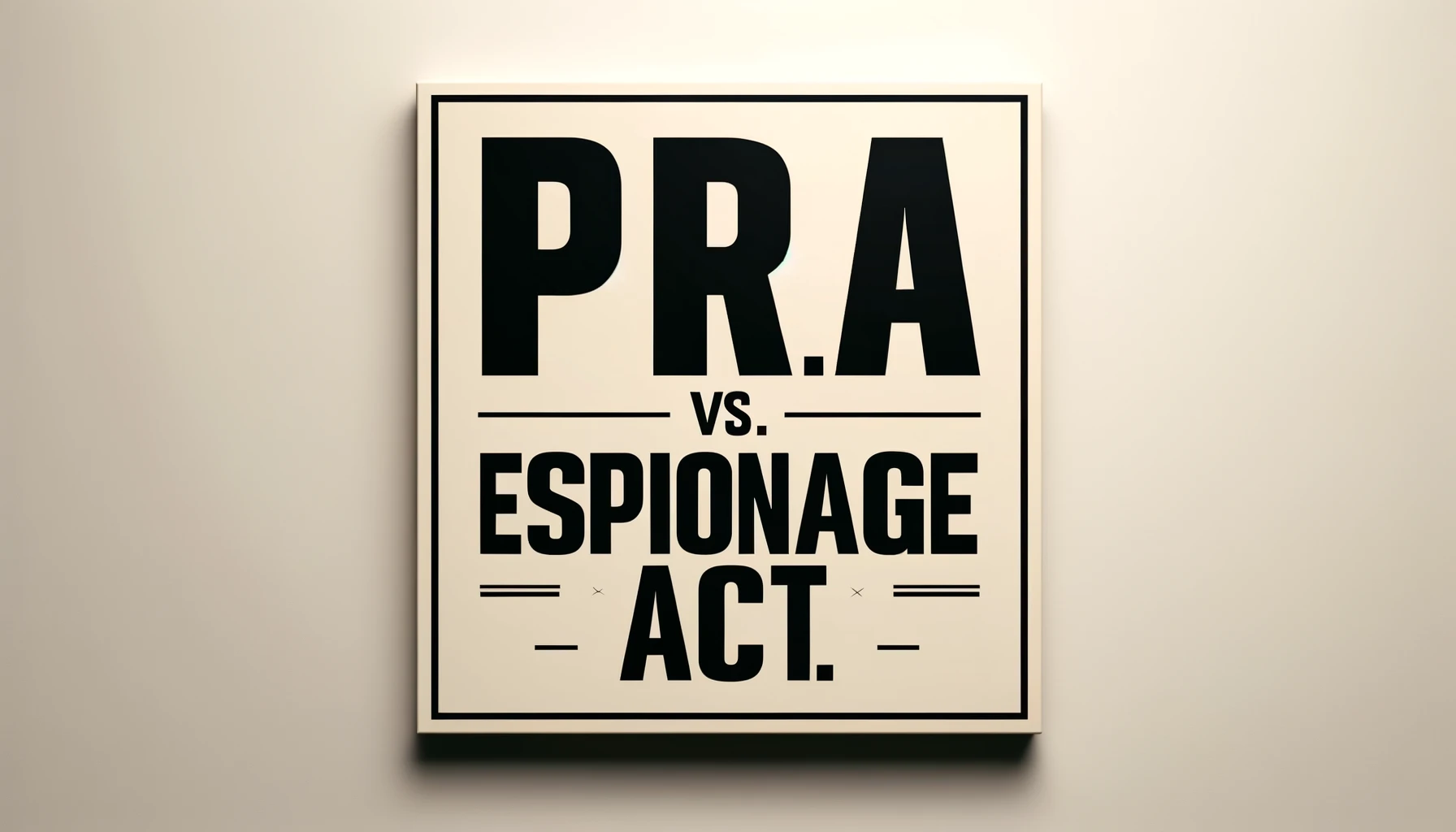Special counsel Jack Smith is in a legal standoff with U.S. District Judge Aileen M. Cannon over how a law, known as the Presidential Records Act (PRA), should be interpreted in a case involving Donald Trump and classified documents. The core issue? Whether this law can shield a former president from prosecution for keeping classified documents after leaving office.
The Presidential Records Act vs. The Espionage Act
At the center of this legal drama is the clash between the PRA and Section 793 of the Espionage Act. The PRA is about the management of presidential records, while the Espionage Act deals with the mishandling of national defense information. Trump is accused of violating the latter by holding onto hundreds of classified documents.
Special counsel Smith argues that the judge’s take on the PRA, suggesting it could protect Trump from prosecution, is a “fundamentally flawed legal premise.” He maintains that the Espionage Act, which Trump is accused of breaking, should not be overshadowed by the PRA. Smith argues that the PRA “should not play any role at trial at all.”
Legal Tactics and Possible Delays
Judge Cannon, nominated by Trump and serving since late 2020, has been asked to decide on the relevance of the PRA in this case quickly. Smith warns that delaying this decision could not only postpone the trial but might also jeopardize the prosecution’s chances by preventing an appeal before the trial begins.
The outcome of this legal argument has significant implications. It could potentially delay the trial past the upcoming presidential election, where Trump is a major contender, affecting not just the legal but also the political landscape.

Trump’s Defense
Trump’s defense team argues that as president, he had the authority to declare classified documents as personal property. This argument is crucial for their case but has been met with skepticism from legal experts who say the law clearly states presidential records belong to the public and must be handed over to the National Archives at the end of a presidency.
The Role of Jury Instructions
A peculiar aspect of this case is the focus on jury instructions even before the trial date is set. Jury instructions are guidelines given to jurors on the laws relevant to the case and how to apply them. Judge Cannon has asked for instructions based on two interpretations of the PRA: one that supports Trump’s ability to classify documents as personal and another that leaves it up to jurors to decide the nature of the documents Trump retained. On the contrary, the government has made it clear that it’s the Espionage Act, rather than the Presidential Records Act (PRA), that serves as the law regarding the protection of classified materials. In other words, Donald Trump faces charges not under the PRA but under the Espionage Act, which is the reason for the government’s stance that the PRA doesn’t belong in the jury instructions for this case.
Awaiting Decisions
With Trump also facing other legal challenges, the timing and outcome of this case are under close watch. Judge Cannon’s decisions on the PRA’s role and the trial date could shape the course of this high-stakes legal battle.
This article is based on the following article:
https://www.washingtonpost.com/national-security/2024/04/03/trump-documents-case-cannon-jack-smith

Background Information
To fully grasp the complexities of the legal battle involving former President Donald Trump and classified documents, it’s helpful to understand several key concepts and background elements. This overview will cover the basics of the Presidential Records Act (PRA), the Espionage Act, the role of special counsel, and the significance of presidential nominations to the judiciary, all crucial for navigating the nuances of this case.
The Presidential Records Act (PRA)
The PRA, enacted in 1978, changed the legal ownership of the official records of the President from private to public. It mandates that records of presidential activities, decisions, and deliberations are property of the U.S. government and must be managed by the National Archives and Records Administration (NARA) at the end of a presidency. This law ensures that presidential records are preserved and accessible for historical and governmental purposes, distinguishing between “presidential records” and “personal records” to define what must be preserved.
The Espionage Act
Originally passed in 1917, the Espionage Act is a federal law that prohibits the unauthorized possession, disclosure, or transmission of information related to national defense that could harm the United States or aid its enemies. This law has been used to prosecute a wide range of national security violations, including the mishandling of classified information. Violations can lead to severe penalties, reflecting the government’s priority to protect national security.
Special Counsel
A special counsel is appointed to investigate, and possibly prosecute, cases where the Department of Justice (DOJ) perceives a conflict of interest or when it’s in the public interest to have an external authority take charge. Special counsels have a degree of independence from the DOJ to ensure their investigations are conducted without undue influence. In this context, Jack Smith was appointed as special counsel to oversee the investigation into Trump’s handling of classified documents, highlighting the seriousness and high-profile nature of the case.
Judicial Appointments by Presidents
U.S. District Judges are nominated by the President of the United States and confirmed by the Senate. These lifetime appointments are significant because they can influence the interpretation of laws and the outcomes of cases for decades. Judge Aileen M. Cannon, overseeing Trump’s case, was nominated by him during his presidency, which adds a layer of interest to how she handles the proceedings, especially given the political sensitivities involved.
Understanding the Clash
The dispute between special counsel Jack Smith and Judge Cannon centers on whether the PRA can shield Trump from prosecution under the Espionage Act for keeping classified documents after leaving office. This legal contention underscores a broader debate about presidential powers, the protection of classified information, and the accountability of public officials.

Debate/Essay Questions
- Should Former Presidents Have Special Privileges Regarding Classified Documents?
- Has Judge Cannon Shown Enough Credibility and Fairness in Handling This Case So Far?
Please subscribe to Insight Fortnight, our biweekly newsletter!
